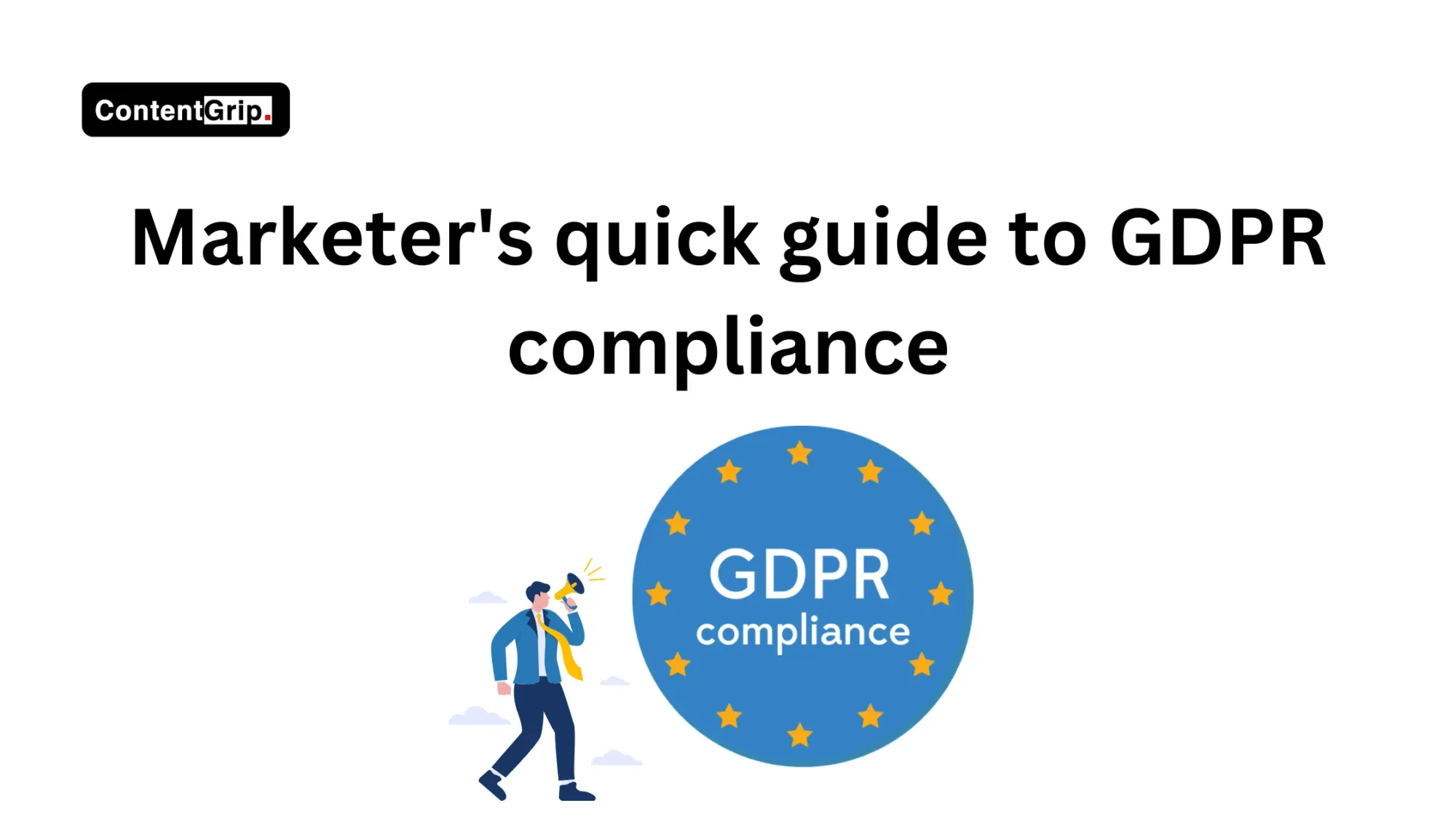Marketer's quick guide to GDPR compliance
Explore the importance of GDPR compliance for marketers in today's digital age.

Since its instatement in 2018, the EU's General Data Protection Regulation has been reshaping how businesses and other entities approach data collection and handling. Here’s a quick summary of what this means for marketers and how they can ensure compliance.
Obtain informed consent
Transparency and legality are the cornerstones of GDPR-compliant information correction. Marketers may satisfy them by obtaining informed consent. Do so by clearly outlining which information you plan to collect, why you need it, and how much it will be used.
It's also important not to presuppose consent. Users should be allowed to read through and ask for clarification about your consent forms. Most importantly, the final step in acknowledging their understanding needs to be voluntary and initiated on their part. Pre-checked boxes and other suggestive measures are not allowed.
Minimize data collection
While successful marketing hinges on identifying and developing content for target audiences, the GDPR advises gathering it in moderation. Specifically, marketers should only collect the data needed to ensure continued business operations. This benefits users and companies alike, as it decreases the amount of useful data that can be exposed in breaches.
Anonymization or pseudonymization further removes the association between actual users and the data points you need to market to them effectively. Data should also be audited regularly and removed safely if it no longer serves a purpose or has become incorrect.
Protect the data you do collect
Safeguarding collected data from breaches and misuse is an integral part of GDPR compliance. Collected data needs to be securely stored in encrypted databases. Restrict access to these databases and implement role-based controls to combat tampering and contain the damage if a breach does happen.
Password security is vital to maintaining high access security standards. Marketing team members should not be responsible for credential creation and maintenance since doing so risks the use of weak or repeated passwords.
It's simpler and more advantageous to use a team password manager instead. Doing so ensures all accounts with customer data access have strong, unique passwords safely stored in an encrypted vault. Syncing with devices makes work from anywhere easier, while two-factor authentication integration further improves password security. Decent password managers will offer the password sharing feature. This way, you don’t have to share account credentials with your team members in risky ways.
In addition, look for the best password manager that is GDPR-compliant as well. Look for one that employs the most advanced encryption methods and zero-knowledge architecture, meaning it has no knowledge of the passwords and other information stored locally. Ideally, the manager should be ISO/IEC 27001:2017 certified to guarantee the protection of data integrity and confidentiality.
Ensure third-party vendor compliance
Marketing today is extensively interconnected. All outside resources from your CRM to your cloud hosting platform, along with collaborators like part-time freelancers, need access to your data to do their part effectively.
Under the GDPR, you are liable for any mishandling of personal data by a third party. It's your responsibility to vet third parties for GDPR compliance and audit them over time to avoid the loss of customer trust and significant financial damage.
For US-based marketers or companies working with EU customers, it’s important to understand how GDPR applies outside of the EU. The GDPR compliance checklist for US companies by Usercentrics outlines key steps to ensure your marketing operations remain compliant across jurisdictions. Having a structured checklist helps teams align privacy policies, manage data securely, and demonstrate accountability in audits.
Respect data subject rights
The GDPR enables subject agency and establishes personal data rights. If asked, you have a duty to provide a copy of the data you have on someone, make changes if it is incorrect or outdated, and even delete the data.
It should be straightforward for users to make these requests. To that end, it’s best to train the marketing team on related user rights and how to comply with requests swiftly.
